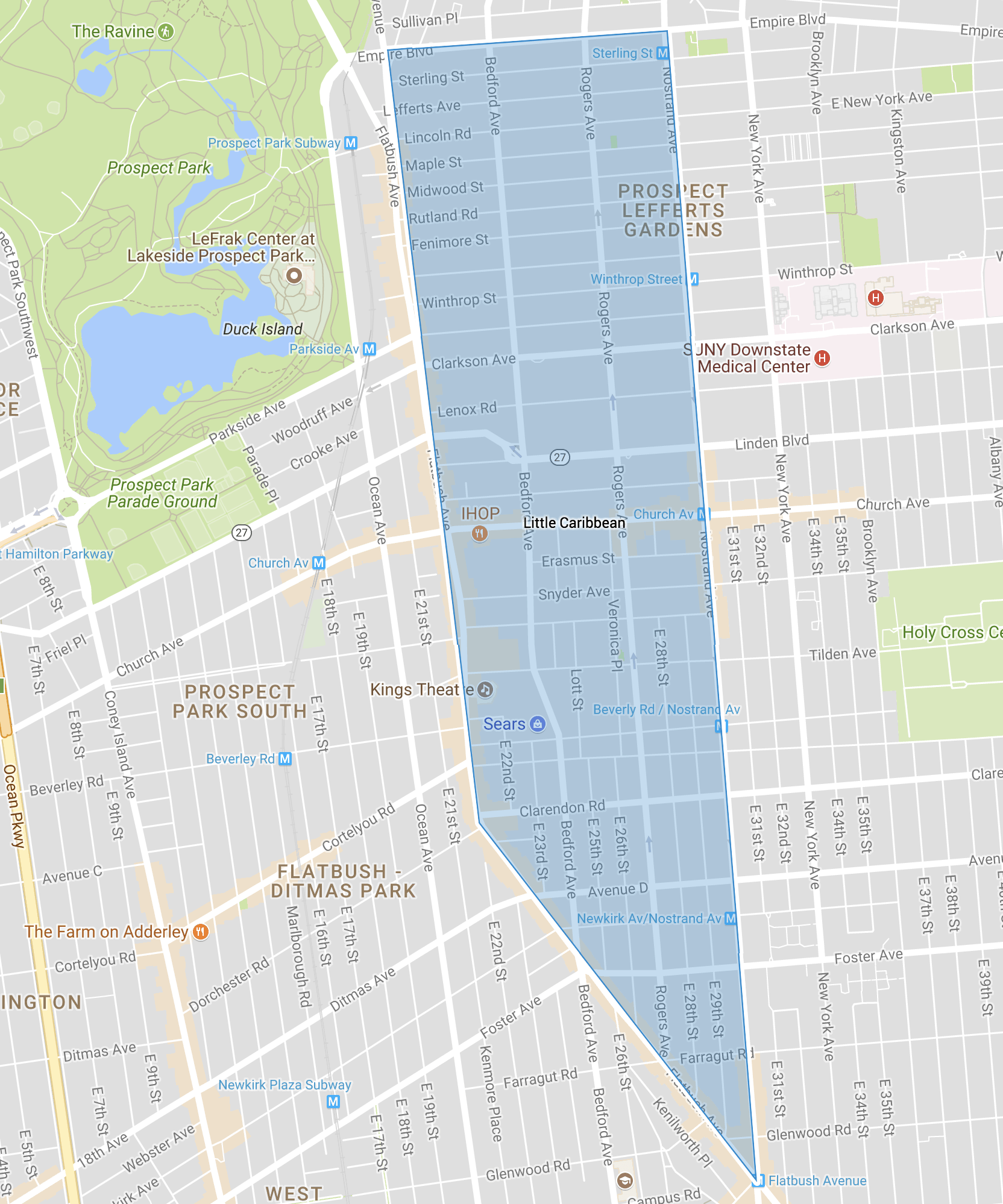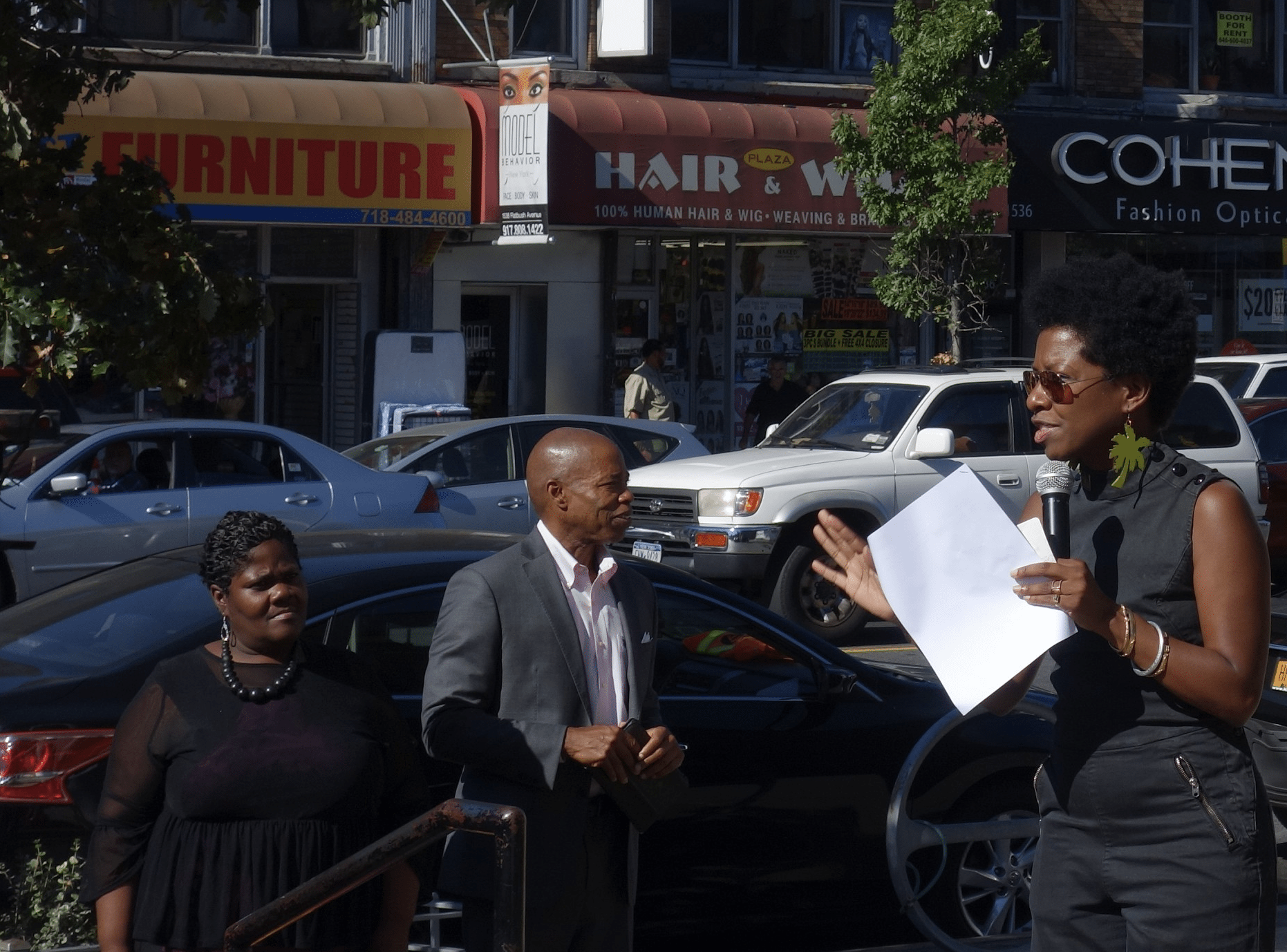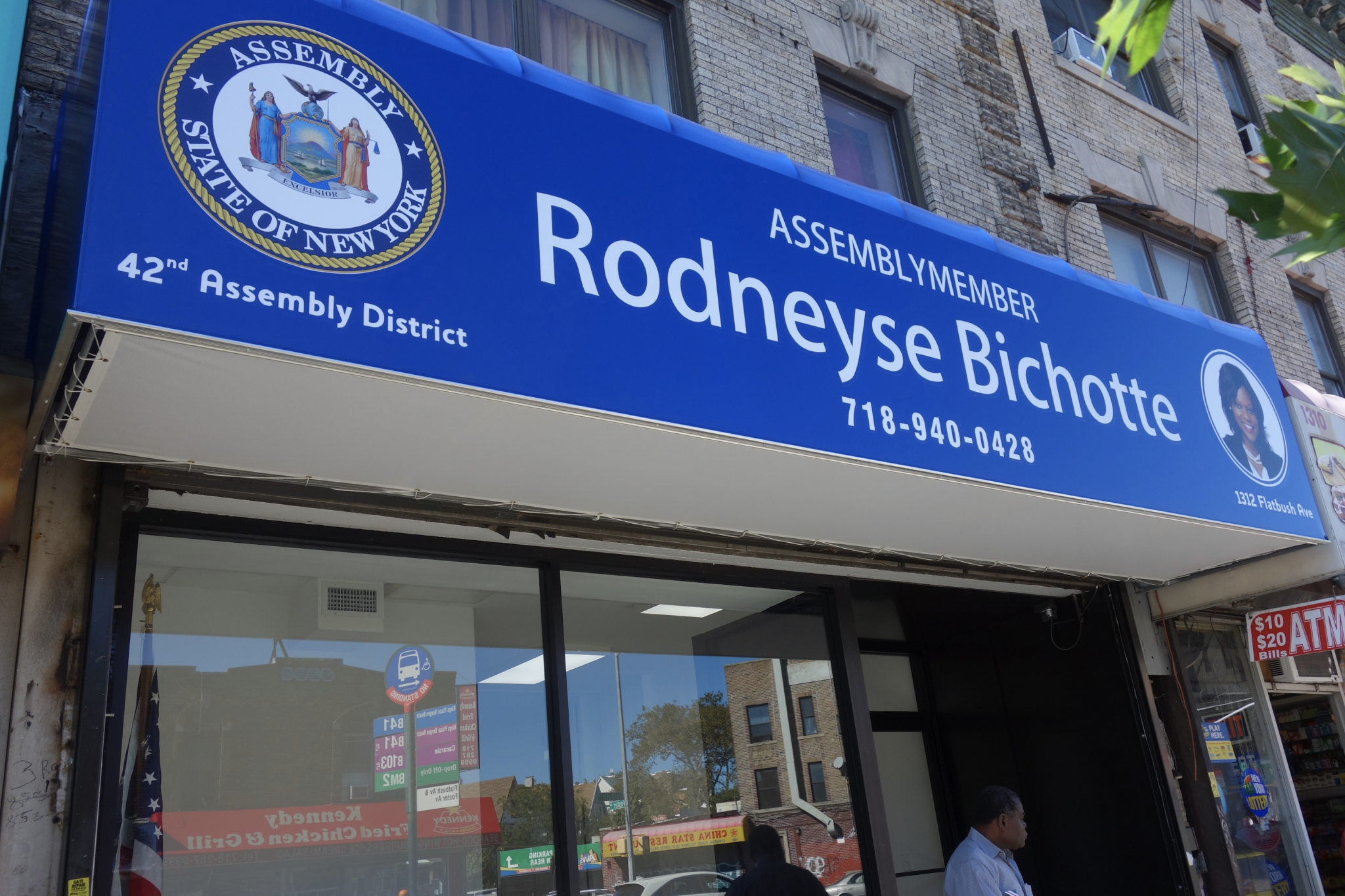Little Caribbean v Little Haiti – Not So Simple To Designate A Cultural Area In Flatbush


FLATBUSH JUNCTION – This morning around 10:30 am about two dozen neighbors, activists and members of the press gathered at the Flatbush Junction to hear a large swath of Flatbush, East Flatbush, and PLG be pronounced – Little Caribbean.
The driving force behind this designation is Shelley Worrell of CaribBEING, a local cultural institution that started as Flatbush Film Festival back in 2010 and has grown to include creating experiences and curating exhibitions.
Creating the Little Caribbean seems like a natural next step in her efforts to preserve and celebrate Caribbean food, culture and small businesses in the area, home to one of the largest populations of Caribbean immigrants in the country.

The organizers hope that the designation of the Little Caribbean will help create jobs and attract tourists to the area:

The footprint runs along Flatbush Avenue from Empire to Nostrand Avenues (known as the Junction), includes the commercial area along Church Avenue from Ocean Avenue to New York Avenue, and Nostrand Avenue from Empire to Flatbush Avenues. All in all – about 5 miles of commercial corridors.

The initiative has received support from the Caribbean Tourism Organization (CTO), NYC & Company, Brooklyn Borough President Eric Adams and the Flatbush Nostrand Junction BID, Worrell said in a press release.
“I’m proud to be a longtime supporter of the Little Caribbean, and I’m even prouder that this designation is coming to fruition,” said Brooklyn Borough President Eric Adams in a statement. “Brooklyn is the epicenter of the Caribbean Diaspora, and this branding promises to have an incalculable value on the economic development and cultural pride of Flatbush and East Flatbush.”
There was music, of course.
The event took place a few blocks south of Assembly member Rodneyse Bichotte’s office, however, she was not there. Local council members Mathieu Eugene and Jumanee Williams that represent the area were also nowhere to be seen.

Assemblymember Bichotte issued a feisty press release last night, saying that the designation of “Little Caribbean” was premature, and did not have a wide community support:
“For example, no meetings were held with the local elected officials including Congresswoman Yvette Clarke, State Senator Kevin Parker, Assemblymember N. Nick Perry, Assemblymember Diana Richardson, Assemblymember Rodneyse Bichotte, Councilmember Mathieu Eugene, and District Leaders Josue Pierre, Melba Brown, and Cory Provost, as well as the honorable Dr. Roy Hastick, who came up with the original idea. In addition, the local Business Improvement Districts (BIDS) are not entirely on board including the Flatbush and Church Avenue BIDs as well as Crown Heights merchants for similar reasons.
The support of the idea for the designation is welcome, but it has to be discussed with local community members. ”
The issue at heart? Designation for a “Little Haiti.” The Haitian community supports the designation of both “Little Haiti” and “Little Caribbean,” said Assemblymember Bichotte, who is the first Haitian-American to be elected to the State Legislature from New York City. “However, we were taken aback by the lack of engagement that has been shown to many of the elected officials and key stakeholders within the Haitian community throughout the overall process.”
“Haiti has had a unique position within the Caribbean — it is in the Caribbean, but not of the Caribbean. Although Haiti is geographically part of the Caribbean, the Haitian community has historically been singled out and excluded as a member of the greater Caribbean community, which is why Haitians have had to build separate communities and organizations in order to survive,” she said.
“Little Haiti” exists, de facto, because when Haitians first moved to the Flatbush neighborhood of Brooklyn, they were isolated in part due to speaking French-Creole versus English, which is spoken by other Caribbean countries.
“Old wounds have been opened as the voices of the community and elected officials have not been engaged throughout the designation process. Although, the journey to unity has come a long way between island politics and differences, having both designations would be ideal to acknowledge the Haitian people’s struggle,” Assembly woman noted.




